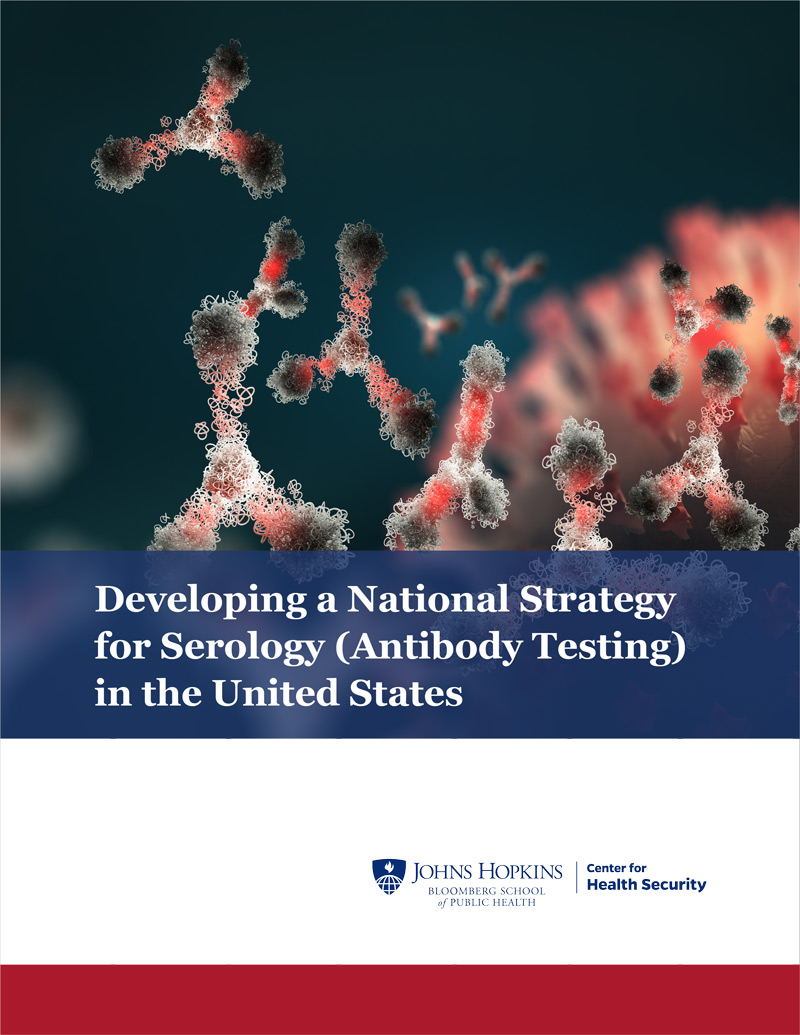Center Releases New Report Calling for the Development of a National Strategy for Antibody Testing in the US
Center News

April 22, 2020 – The Johns Hopkins Center for Health Security has released a new report: “Developing a National Strategy for Serology (Antibody Testing) in the United States.”
Serology, or antibody testing, for COVID-19 may be used to identify whether people were previously infected by SARS-CoV-2, even if they were asymptomatic. This report outlines potential uses of the tests, areas where additional research is needed, examples from other countries now beginning to deploy these tests, and why it is a priority for accurate, validated serology testing to be accessible to public health authorities across the United States.
Here are some of the report’s key takeaways:
- Accurate, validated tests are needed: Public health authorities need quality tests to conduct surveillance and to estimate the numbers of people previously infected. Many tests currently being used in the U.S. are not providing accurate results.
- Research on immunity is needed: While many experts assume people develop some degree of immunity to SARS-CoV-2 after recovery, further research will be needed to determine whether specific antibody levels correlate with immunity and how long immunity might last.
- Immunity certificates are premature: The authors caution against the use of “immunity certificates” until accurate, validated tests are available; immunity is correlated with antibody levels; and seroprevalence studies are performed. The authors describe additional challenges of using certificates—including ethical, legal, and public health implications.
